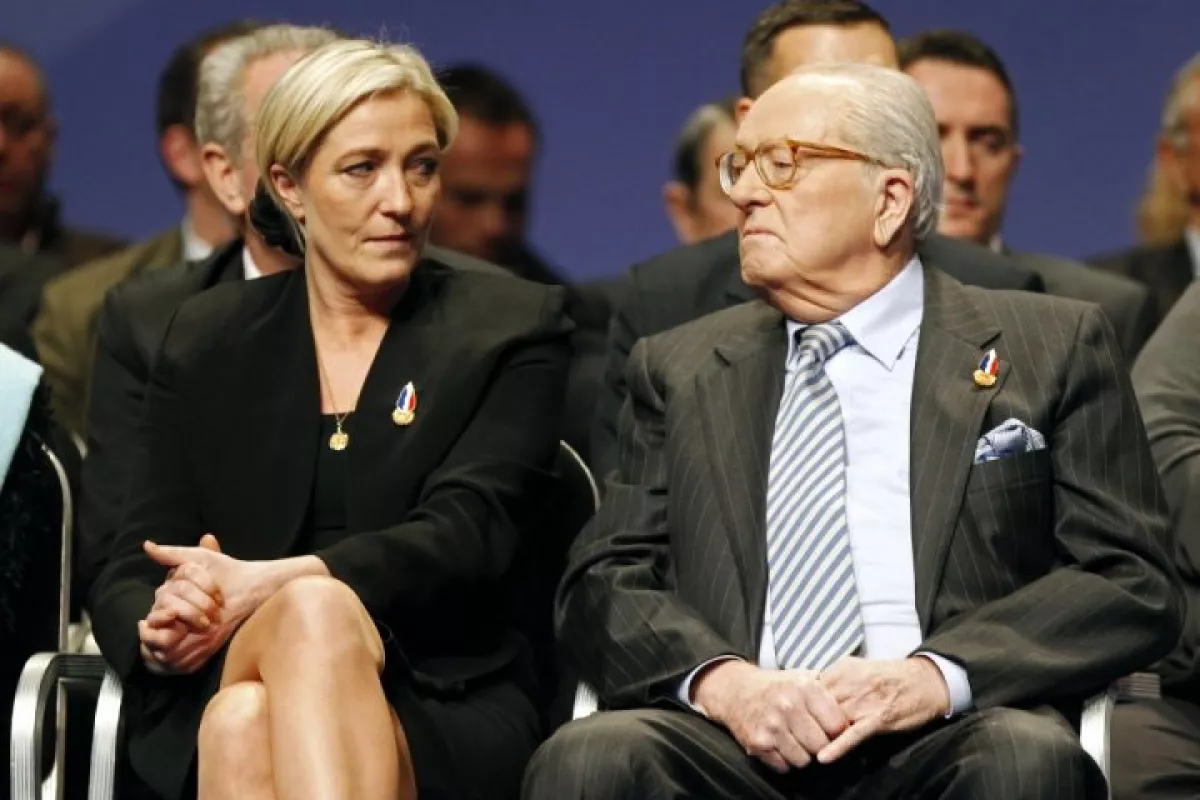Le Pen family's influence on French far-right political landscape
The Le Pen family has been at the heart of France’s far-right politics for decades, shaping the country’s nationalist and populist movement. The recent embezzlement charges against Marine Le Pen and her party, the National Rally, are just the latest chapter in the family’s controversial political legacy. Despite facing financial scandals and has now been charged with misappropriating European Parliament funds, Marine remains a powerful force in French politics, continuing the work started by her father, Jean-Marie Le Pen though the path since then has been accompanied by a bitter family feud over the party's core values.
Since the verdict, Marine has been handed a lifeline in her bid to become France’s president after a court of appeal said it would issue a decision on her case by summer next year. According to an article by Politico, this means the door remains slightly open for her presidential candidacy should she complete her appeal in time and win. Otherwise the upcoming 2027 elections would be the first since 1988 in which the Le Pen name is not up at the presidential election ballots.
Jean-Marie Le Pen, a former paratrooper in the Algerian War, founded the National Front in 1972 with a mix of nationalist extremists, Nazi collaborators, and ultra-conservatives. Initially struggling to gain traction, the party broke through in 1984 when it secured 11% of the vote in European elections, marking the beginning of its rise. Jean-Marie built his influence by appealing to both upper-class conservatives and working-class voters disillusioned with mainstream politics, as an article by The Independent puts it. He capitalized on economic struggles in France’s former industrial regions, shifting toward protectionism while stoking fears about immigration, particularly from Africa.
The turning point for Jean-Marie came in 2002 when he shocked the country by advancing to the second round of the presidential election against Jacques Chirac. However, France overwhelmingly rejected him, with Chirac winning 82.2% of the vote. The defeat underscored a key reality—despite his growing support, Jean-Marie’s racist and antisemitic rhetoric made him unelectable. He infamously repeatedly dismissed the Holocaust as a “detail” of history and claimed that African immigration would “submerge” France. His controversial statements, including remarks about France’s 1998 World Cup-winning team having too many “players of color” to be truly French, alienated large segments of the electorate.

Family feud
By the late 2000s, Jean-Marie’s time as the face of the far right was coming to an end, and his daughter Marine Le Pen was ready to take over. When she was elected leader in 2011, she pursued a strategy of rebranding the party—softening its tone while maintaining its nationalist and anti-immigration positions. She sought to distance herself from her father’s controversies since then, including his Holocaust denial and sympathy for France’s Vichy government, which collaborated with the Nazis. Instead she chose to emphasize economic nationalism and law-and-order policies over outright racist appeals.
The break between Marine and her father became permanent in 2015 when Jean-Marie once again referred to Nazi gas chambers as a “point of detail” in history. Unlike before, Marine acted decisively—expelling him from the party he founded and formally rebranding it as the National Rally in 2018. The move was aimed at making the party more palatable to mainstream voters and broadening its appeal beyond its traditional far-right base.
Marine’s efforts paid off electorally. In the 2017 presidential election, she advanced to the runoff against Emmanuel Macron, securing 34% of the vote—far surpassing her father’s performance in 2002. Five years later, she improved her numbers again, winning 41.5% against Macron in 2022, demonstrating that the historical “republican front” of voters uniting against the Le Pens was weakening.
However, the recent embezzlement scandal threatens to derail her path to power. French prosecutors claim that between 2004 and 2016, the National Rally misused over €4 million in European Parliament funds meant for parliamentary assistants, instead using the money to pay party employees. Marine personally has faced allegations of misappropriating €474,000 and has been found guilty on the charges.
The “other” Le Pen
While Marine remains the dominant figure in the far-right movement, another Le Pen is likewise active in French politics—her niece, Marion Maréchal. The daughter of Marine’s sister, Yann Le Pen, Maréchal has positioned herself as a torchbearer for the family’s more hardline nationalist legacy. She distanced herself from Marine’s leadership and took her grandfather’s side when Marine Le Pen first took over the far-right party, changed its name and expelled her father. She refused to endorse the National Rally in the 2019 European elections and instead aligning with Éric Zemmour, a far-right polemicist.

In 2023, Maréchal founded her own party, Identity-Freedoms, aiming to unite the nationalist right under a more radical platform. Though currently serving as a Member of the European Parliament, she remains a key figure on the far right, advocating policies even more extreme than those of Marine.
By Nazrin Sadigova








